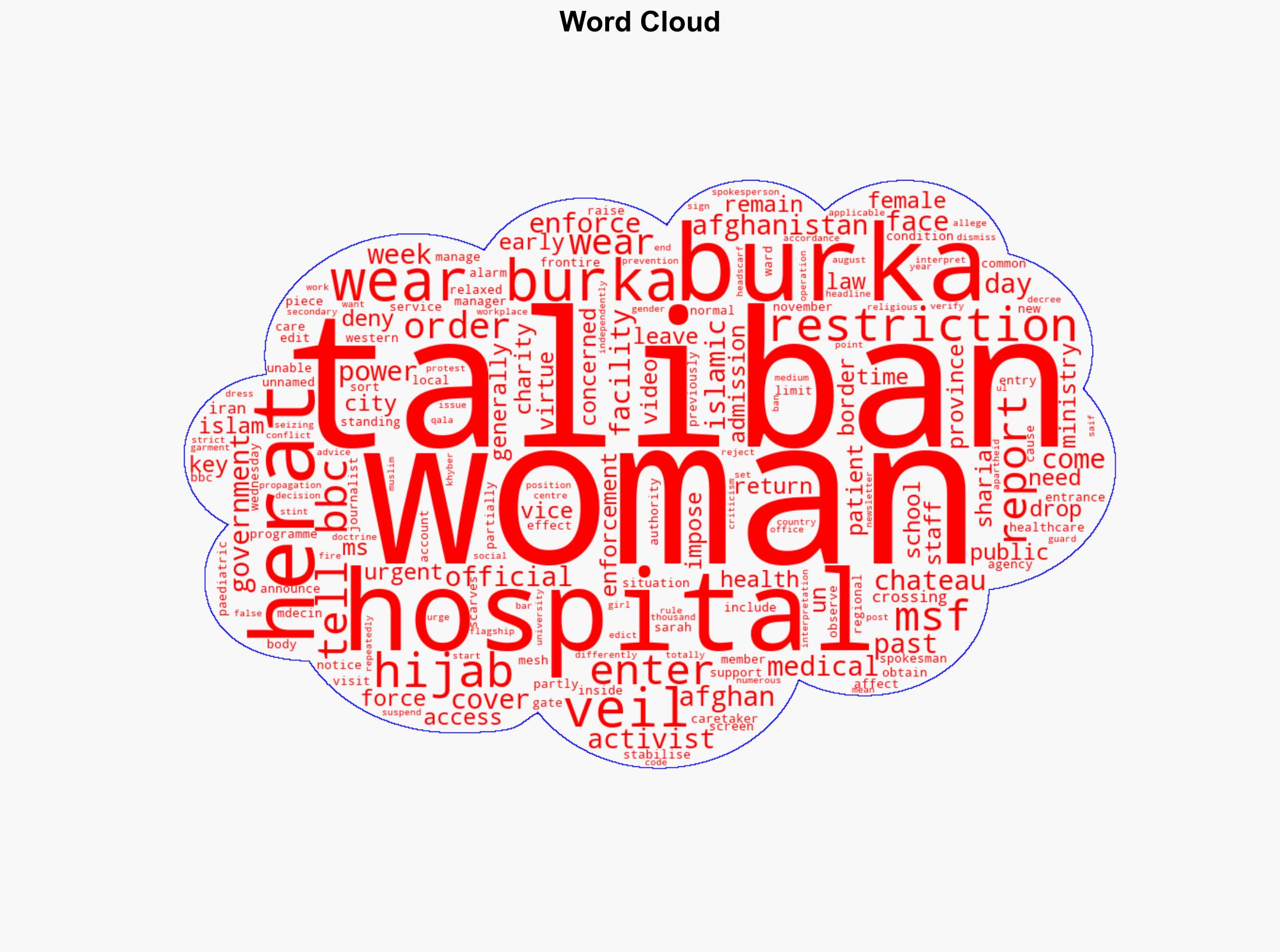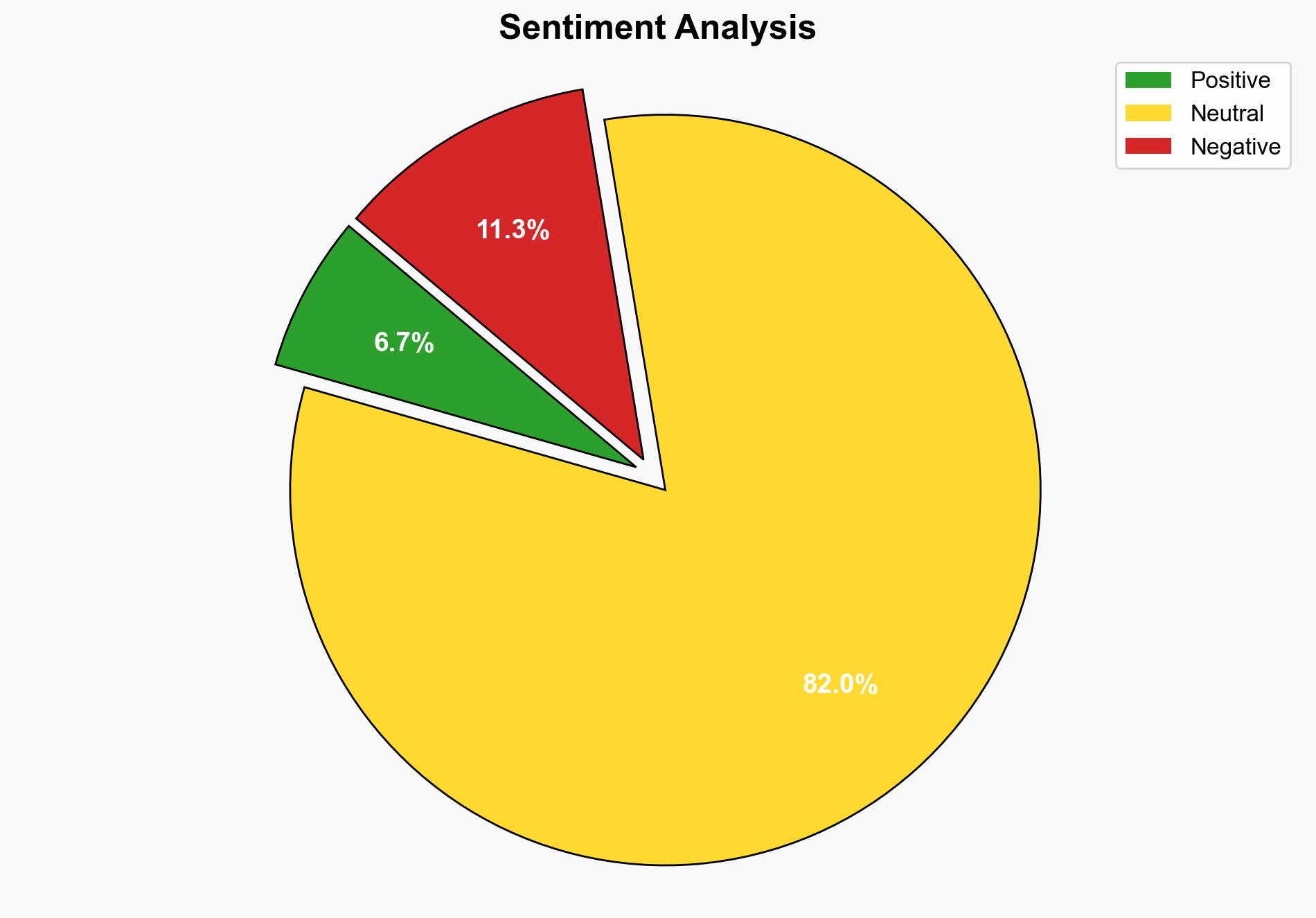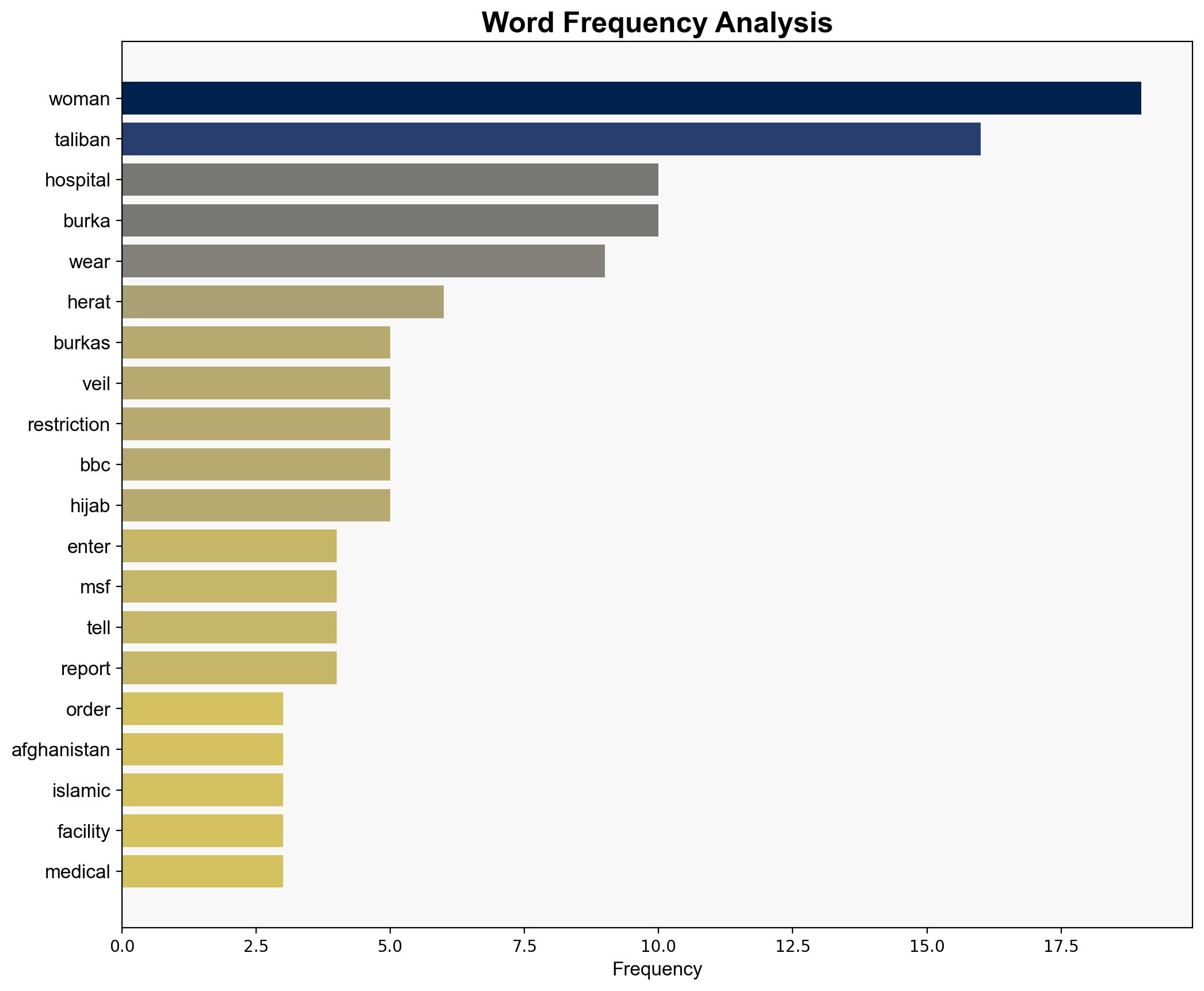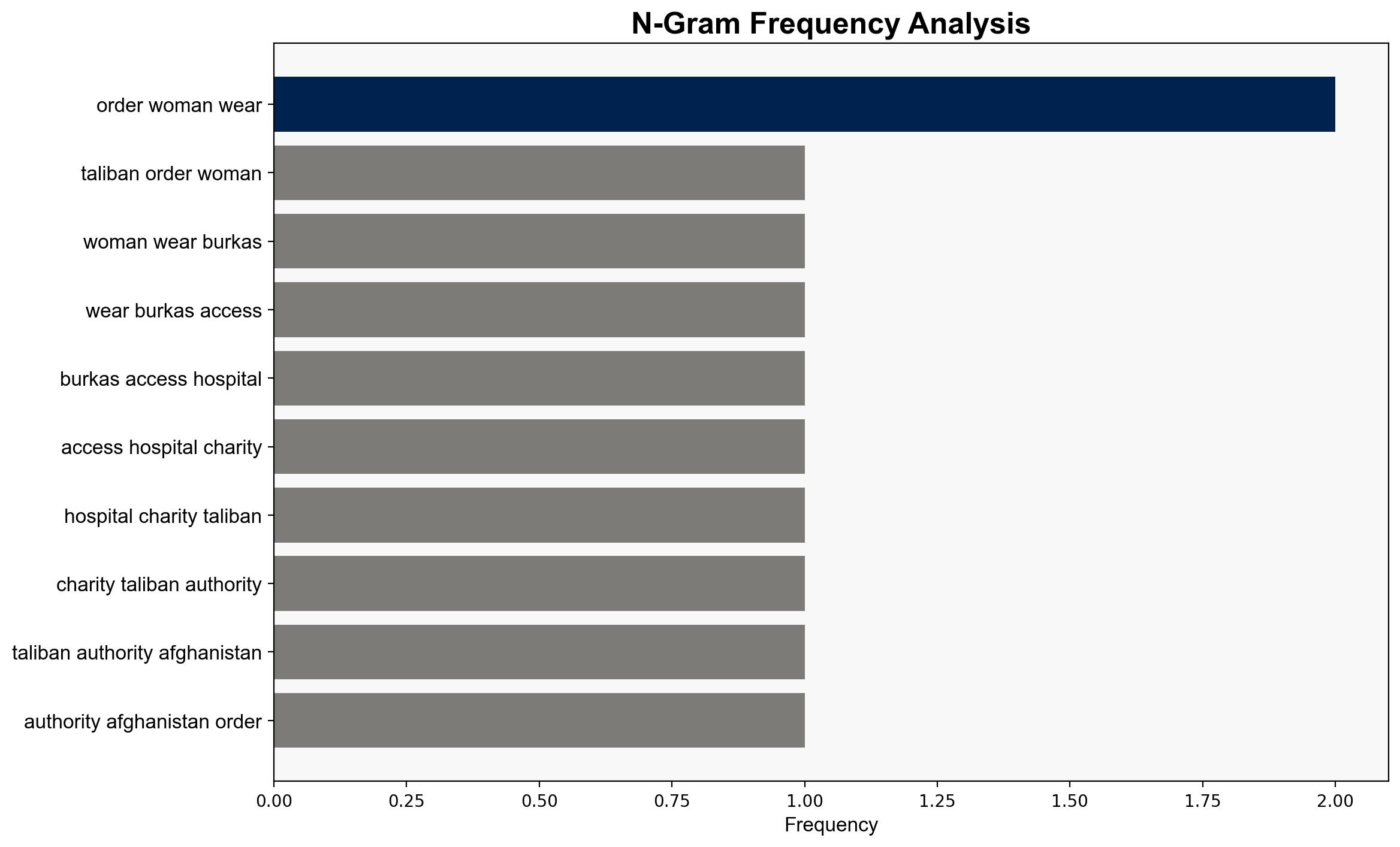Taliban order women to wear burkas to access hospitals charity says – BBC News
Published on: 2025-11-12
AI-powered OSINT brief from verified open sources. Automated NLP signal extraction with human verification. See our Methodology and Why WorldWideWatchers.
Intelligence Report: Taliban order women to wear burkas to access hospitals charity says – BBC News
1. BLUF (Bottom Line Up Front)
With a moderate confidence level, it is assessed that the Taliban’s enforcement of burka requirements for women accessing hospitals in Herat is part of a broader strategy to reinforce conservative Islamic norms and consolidate control over public life. The most supported hypothesis is that this policy aims to strengthen internal cohesion and demonstrate adherence to their interpretation of Sharia law. Recommended actions include diplomatic engagement to encourage policy moderation and support for humanitarian organizations to ensure continued healthcare access for women.
2. Competing Hypotheses
Hypothesis 1: The Taliban’s enforcement of burka requirements is primarily aimed at reinforcing their ideological stance and consolidating power by demonstrating strict adherence to their interpretation of Islamic law.
Hypothesis 2: The policy is a reaction to internal pressures from conservative factions within the Taliban, seeking to appease these groups and maintain internal stability.
Hypothesis 1 is more likely due to the Taliban’s historical pattern of enforcing strict religious codes to assert control and legitimacy. Hypothesis 2 is plausible but less supported by current evidence, as there is no clear indication of significant internal dissent requiring appeasement.
3. Key Assumptions and Red Flags
Assumptions: It is assumed that the Taliban leadership is unified in its decision-making and that the enforcement of the burka policy is a deliberate strategy rather than a localized decision.
Red Flags: Reports of women being denied access to healthcare could indicate potential humanitarian crises. The Taliban’s denial of the policy’s enforcement suggests possible information manipulation or a lack of centralized control.
4. Implications and Strategic Risks
The enforcement of this policy could exacerbate humanitarian challenges, particularly in healthcare access for women, potentially leading to increased international condemnation and isolation. It may also embolden conservative elements within the Taliban, leading to further restrictive measures. There is a risk of escalating tensions with international organizations and potential sanctions, impacting Afghanistan’s already fragile economy.
5. Recommendations and Outlook
- Engage in diplomatic dialogue with the Taliban to advocate for policy moderation and emphasize the humanitarian impact of restrictive measures.
- Support NGOs and international organizations in providing healthcare access and resources to mitigate the impact of the policy on women.
- Best-case scenario: The Taliban moderates its policies under international pressure, improving healthcare access for women.
- Worst-case scenario: The policy leads to severe healthcare access restrictions, resulting in a humanitarian crisis and increased international isolation.
- Most-likely scenario: The policy remains in place with minor adjustments, maintaining current levels of international criticism and humanitarian challenges.
6. Key Individuals and Entities
Sarah Chateau, MSF Program Manager for Afghanistan; Saif ul Islam Khyber, Taliban spokesperson for the Ministry for the Propagation of Virtue and the Prevention of Vice.
7. Thematic Tags
Counter-Terrorism, Human Rights, Women’s Rights, Humanitarian Aid
Structured Analytic Techniques Applied
- ACH 2.0: Reconstruct likely threat actor intentions via hypothesis testing and structured refutation.
- Indicators Development: Track radicalization signals and propaganda patterns to anticipate operational planning.
- Narrative Pattern Analysis: Analyze spread/adaptation of ideological narratives for recruitment/incitement signals.
Explore more:
Counter-Terrorism Briefs ·
Daily Summary ·
Methodology





